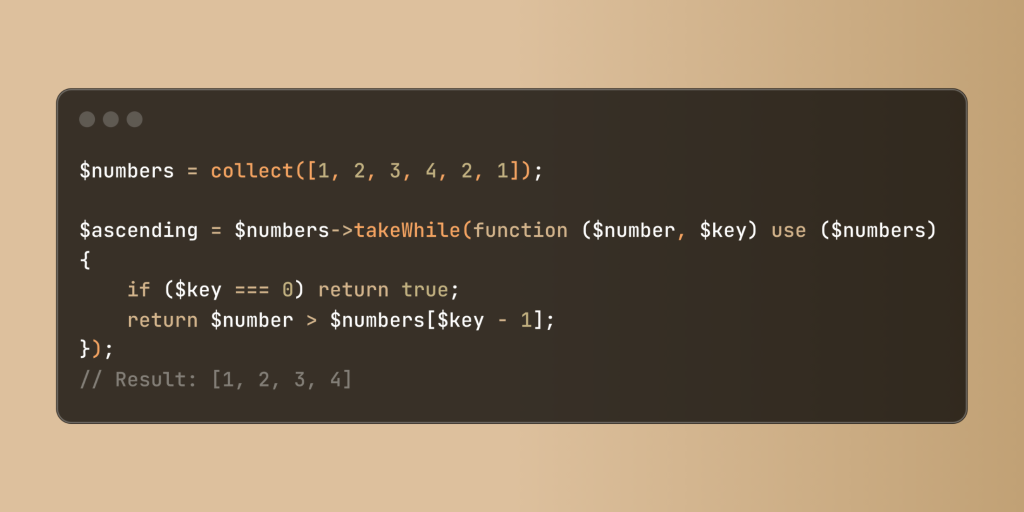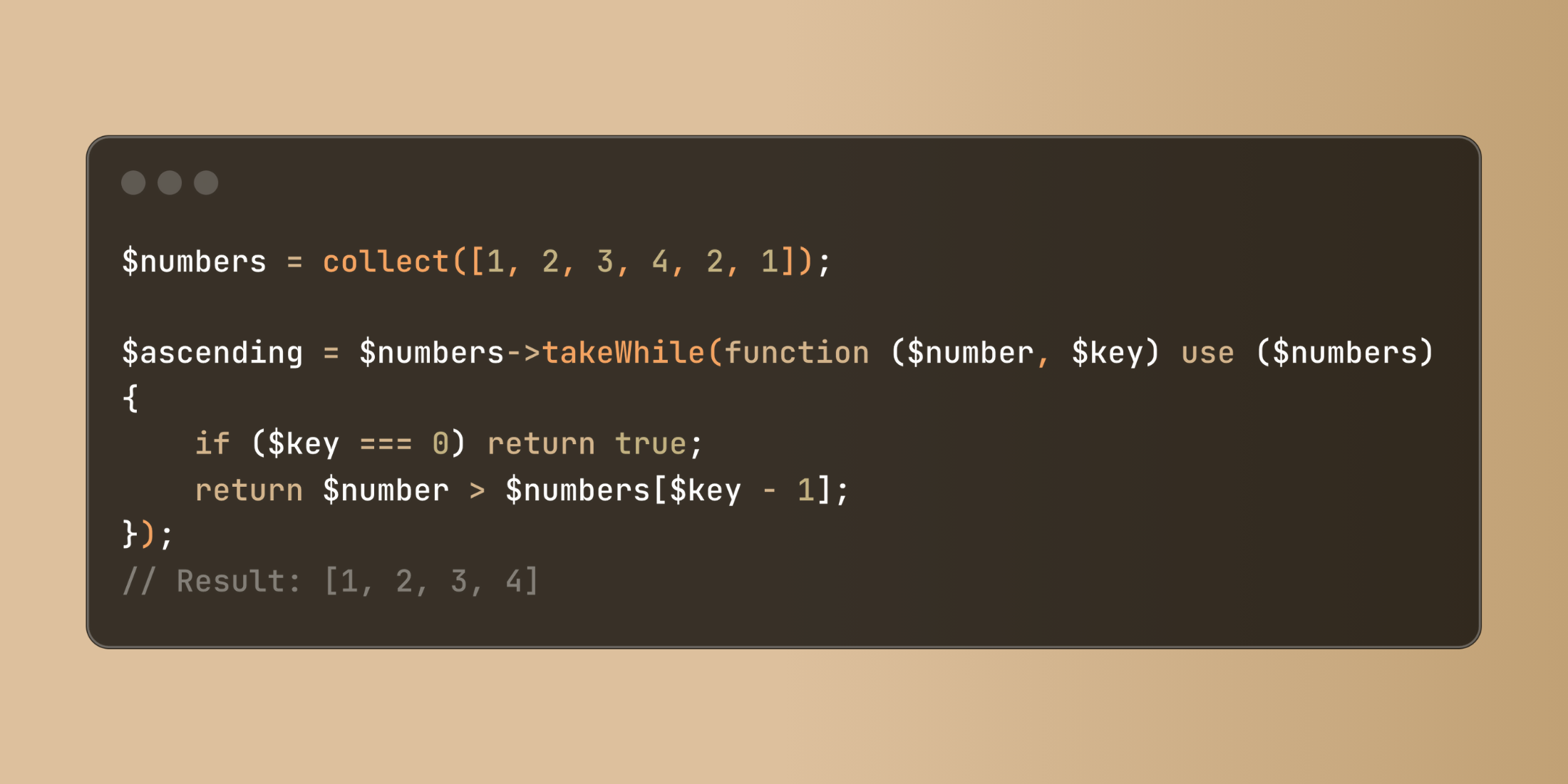Laravel’s takeWhile method provides precise control over collection filtering, allowing you to extract elements that consecutively meet a condition until the first failure occurs.
$numbers = collect([1, 2, 3, 4, 2, 1]);
$ascending = $numbers->takeWhile(function ($number, $key) use ($numbers) {
if ($key === 0) return true;
return $number > $numbers[$key - 1];
});
// Result: [1, 2, 3, 4]
Let’s explore a practical example of managing an order processing system with status tracking:
<?php
namespace AppServices;
use AppModelsOrder;
use AppModelsOrderStatus;
use IlluminateSupportCollection;
class OrderProcessingService
{
public function getSuccessfulSteps(Order $order): Collection
{
return $order->statusUpdates()
->oldest()
->get()
->takeWhile(function (OrderStatus $status) {
return $status->successful;
})
->map(function (OrderStatus $status) {
return [
'step' => $status->step_name,
'completed_at' => $status->created_at->format('Y-m-d H:i:s'),
'processor' => $status->processor_name
];
});
}
public function validateProcessingSequence(Collection $steps): bool
{
$requiredOrder = ['payment', 'inventory', 'packaging', 'shipping'];
$currentStep = 0;
return $steps->takeWhile(function ($step) use ($requiredOrder, &$currentStep) {
return $step['type'] === $requiredOrder[$currentStep++] ?? null;
})->count() === count($requiredOrder);
}
}
TakeWhile offers a powerful way to work with sequential data, perfect for processing status updates, validating sequences, or analyzing trends in your data.
The post Extracting Sequential Data with Laravel’s takeWhile appeared first on Laravel News.
Join the Laravel Newsletter to get all the latest
Laravel articles like this directly in your inbox.
Source: Read MoreÂ

